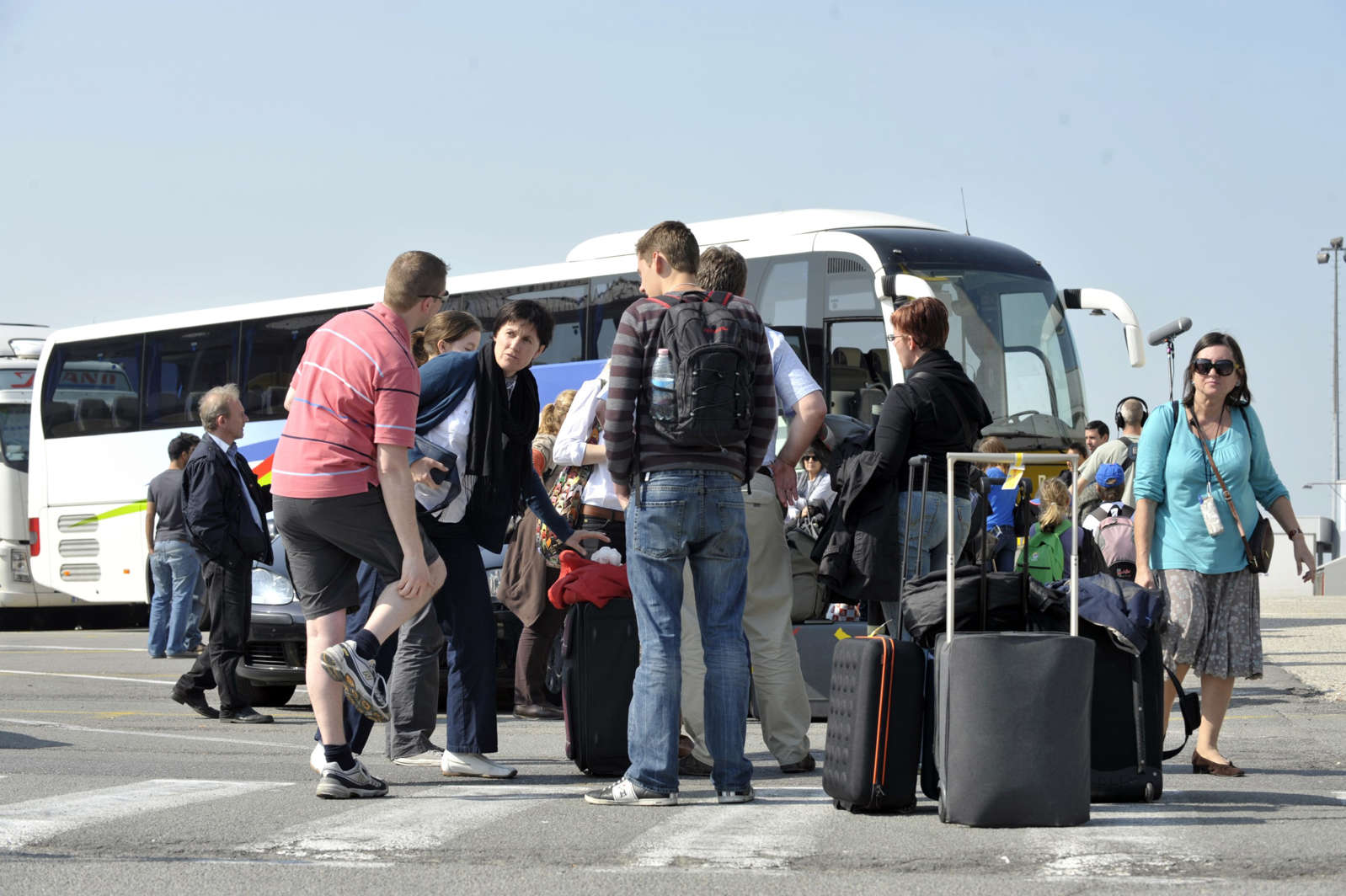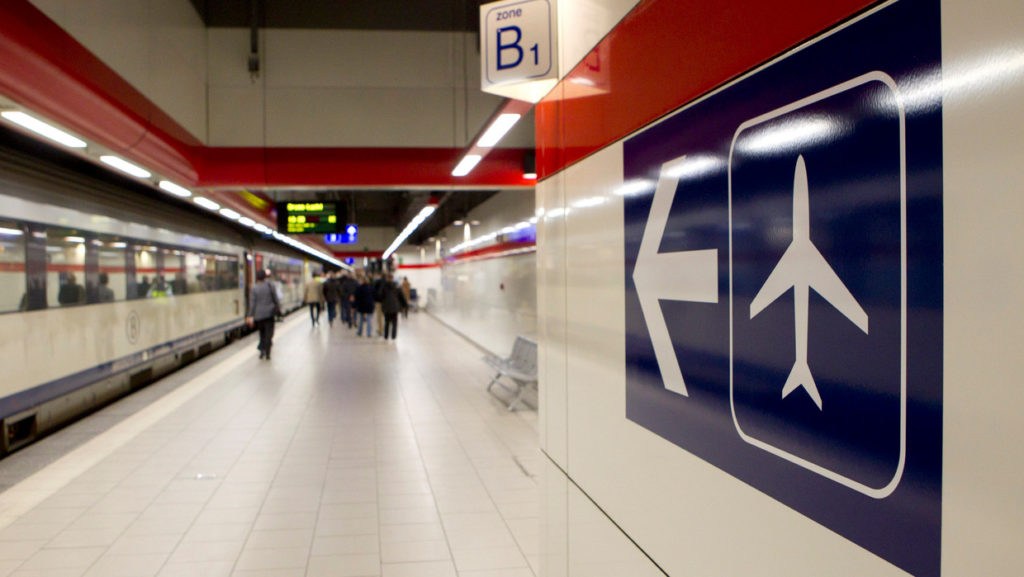A Federal Government negotiation leak obtained by La Libre suggests that a train connection to Brussels South Charleroi Airport may be on the cards.
Its name may suggest a proximity to the Belgian capital, but Brussels South Charleroi Airport is located some 50 kilometres away from Brussels and is notoriously difficult to get to via public transport or otherwise.
However, another leak from Federal Government negotiations suggests that this may be about to change. A section of N-VA leader Bart De Wever's socio-economic 'supernote' states that "we are improving the international high-speed rail connection between the TGV hubs and Brussels Airport in Zaventem. For Charleroi Airport, we plan to provide access to the rail network."
At the moment, Charleroi Airport is not as well serviced as its counterpart, Brussels Airport, which is located just 12 kilometres from the capital.

Flibco buses bringing people to and from the airport. Credit: Belga
Charleroi Airport is the second largest in Belgium and served 10.5 million passengers in 2024. It is reachable by the E42, A54 and E19 motorways. There is also a bus service from the Walloon city of Fleurus (the journey takes 15 minutes).
In Zaventem, the airport's CEO Arnaud Feist is in favour of a high-speed train connection. "An airport like Brussels Airport must have a TGV connection," he said in 2022. "We hope that the government will take the necessary steps."
For the moment, the 'supernote' only mentions an improvement "between the TGV hubs and the airport".
'Utopian and unfeasible'
As welcome as a train connection to Charleroi Airport would be, critics of the proposal have pointed out it would cost millions of euros to set up. The idea is "utopian and unfeasible in terms of infrastructure," an anonymous source told La Libre.
Financially speaking, the initiative comes as a surprise given the incoming 'Arizona' coalition's emphasis on making budget cuts to tackle Belgium's budget deficit. The same 'supernote' aims to make cuts of €23 billion via reforms to pensions, taxation and the labour market.
A national strike in protest of this austerity drew crowds of over 30,000 people to Brussels last Monday.

